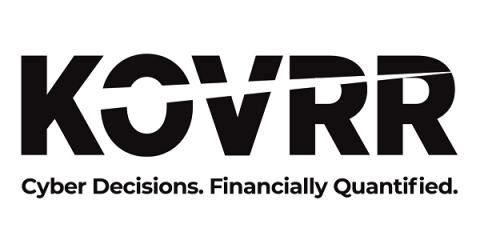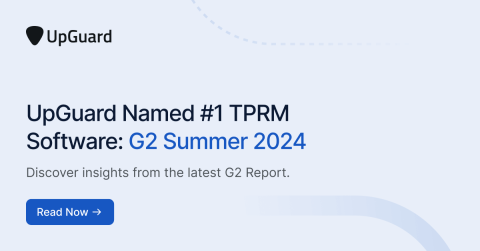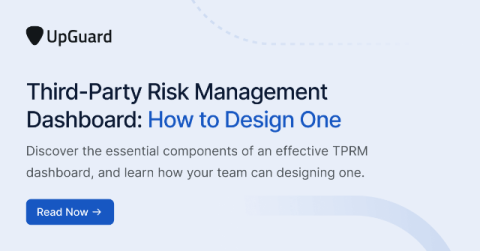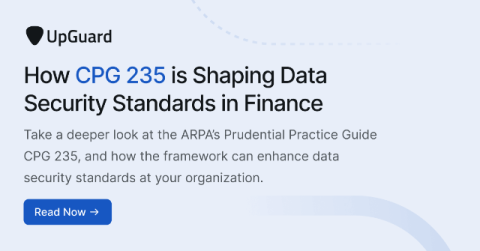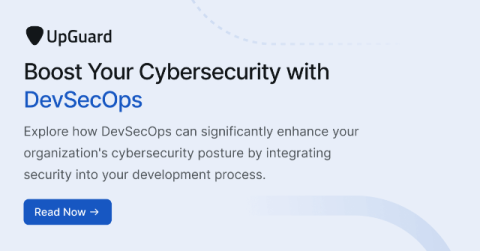Managing Third-Party Cyber Risk in Financial Services
In today's interconnected financial landscape, businesses face increasing risks from third-party vendors, making effective cyber risk management essential. Significant data breach costs and stringent regulatory requirements place further burden on this sector. In response, UpGuard offers a Vendor Risk Management solution to help institutions manage these risks and maintain compliance. Learn more at upguard.com/fsi.





